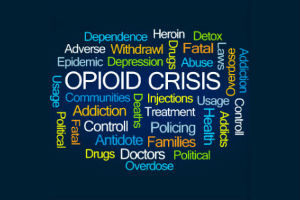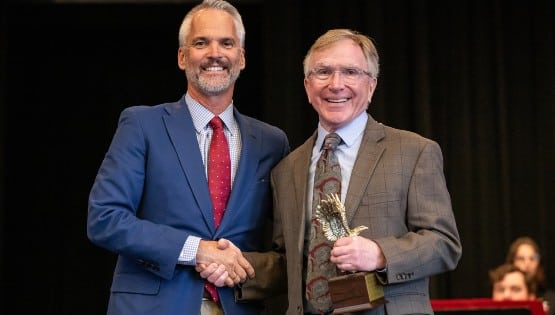
Among Medicaid enrollees with opioid use disorder, having a follow-up visit seven days after an emergency department visit lowers their risk of fatal or nonfatal overdoses within six months, according to new findings led by Virginia Commonwealth University researchers.
The findings were published in the Journal of Substance Abuse Treatment.
“We knew little about the benefits of timely follow-up care on future opioid-related overdoses,” said Andrew Barnes, Ph.D., the study’s co-author and a professor of Health Behavior and Policy at the VCU School of Medicine. “Our results show that patients with a seven-day follow-up visit had a 7.9 percent likelihood of an overdose within six months, compared to 9.2 percent who did not have a follow-up visit.”
The study is based on analysis of more than 114,000 Medicaid enrollees in 11 states who had an opioid-related emergency department visit from 2016 through 2018.
The analysis of Medicaid data was possible because of the Medicaid Outcomes Distributed Research Network, a unique network that partners academic institutions including VCU with state Medicaid programs to overcome barriers to data-sharing among states.
The 11 states included Virginia, Delaware, Kentucky, Maryland, Maine, Michigan, North Carolina, Ohio, Pennsylvania, West Virginia and Wisconsin.
State data was de-identified to protect patient privacy but research showed considerable differences among continued care after an emergency department visit across the 11 states, ranging from a low of 7.2 percent to 22.4 percent.
Hospital emergency departments are major sources of care for people with opioid use disorder. As opioid use disorders surged from 2010 to 2017, the rate of related emergency department visits doubled to 249 per 100,000 people.
Although the association of follow-up care with future overdoses is relatively modest, the results provide insights that practitioners and policymakers can act on to increase the number of Medicaid enrollees with opioid use disorder who receive follow-up care within seven days after seeking emergency medical care.
In Richmond, VCU Health is currently operating a grant-funded Virtual Bridge Clinic to help patients experiencing opioid use disorder move from the emergency department into treatment and into a telehealth follow-up within 24 hours after discharge. An in-person appointment is also scheduled within two weeks.
“A timely follow-up appointment has incredible impact and gets more people into long-term treatment who otherwise would have slipped through the cracks,” said Brandon Wills, D.O., an associate professor in the VCU Department of Emergency Medicine.
Medicaid is the largest payer of medical and health-related services in the U.S., supplying health insurance to almost 80 million people, nearly a quarter of all Americans.










